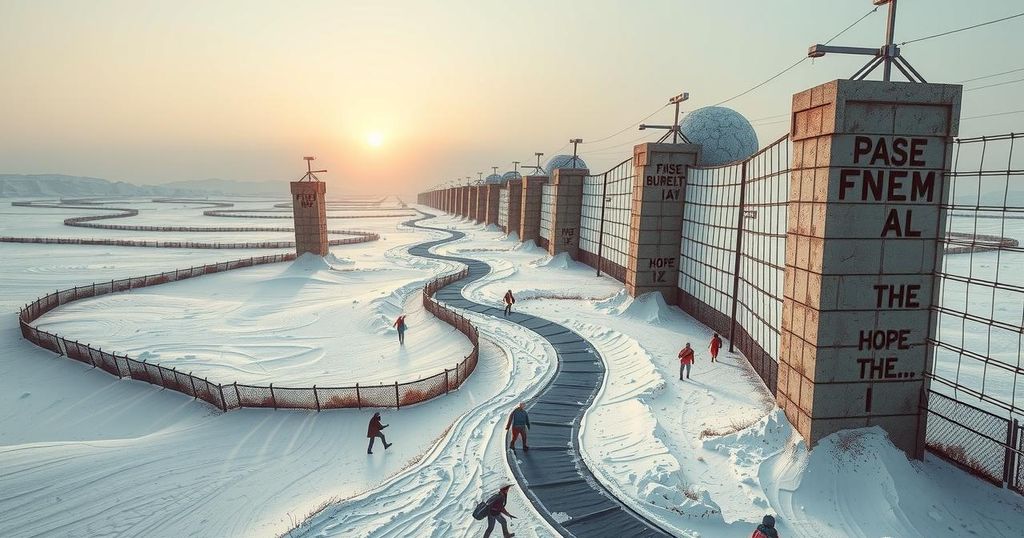Rubio Blasts Cuba, Nicaragua, Venezuela for Migration Crisis

U.S. Secretary of State Marco Rubio condemned the regimes in Cuba, Nicaragua, and Venezuela as “enemies of humanity,” claiming they are responsible for the regional migration crisis. He specifically criticized Nicaragua’s authoritarian rule under President Ortega, while Cuban President Diaz-Canel attributed the migration exodus to the U.S. trade embargo. Rubio’s visit also included discussions about accepting U.S. convicts into El Salvador’s prisons.
On Tuesday, United States Secretary of State Marco Rubio condemned the authoritarian regimes in Cuba, Nicaragua, and Venezuela, labeling them as “enemies of humanity” responsible for a widespread migration crisis in the region. During his visit to Costa Rica, Rubio asserted, “If it were not for these three regimes there would not be a migration crisis in the hemisphere.” He attributed the ongoing crisis to the dysfunction within these nations’ systems, emphasizing the plight of migrants fleeing oppression.
Rubio specifically criticized Nicaragua for establishing a familial political dynasty under President Daniel Ortega and his wife, Rosario Murillo. He stated that their regime has attempted to suppress the Catholic Church and eliminate opposition, leading thousands of Nicaraguans to flee for similar reasons as those escaping Cuba and Venezuela. He concluded that the systemic failures in these countries directly correlate with the increasing migration rates.
Cuban President Miguel Diaz-Canel responded to Rubio’s accusations by labeling them as evidence of the “shamelessness” of U.S. politicians. He argued that the migration crisis from Cuba is directly linked to the prolonged U.S. trade embargo, which has deprived the Cuban people of essential goods and opportunities. Diaz-Canel asserted that the tightening of the embargo exacerbates the exodus of Cuban migrants, suggesting that the U.S. bears significant responsibility for the current situation.
Following his remarks in Costa Rica, Rubio traveled to Guatemala after visiting Panama and El Salvador. He acknowledged a controversial proposal from El Salvador’s President Nayib Bukele, who offered to detain U.S. citizens convicted of crimes in his country’s mega-prison designed for gang members, while also accepting deported gang members from Latin America, including Venezuela.
The migration crisis in Latin America has been exacerbated by various authoritarian regimes in the region, particularly in Cuba, Nicaragua, and Venezuela. Economic instability, human rights violations, and political oppression have led to a significant outflow of people seeking refuge, primarily in the United States. U.S. officials have increasingly focused on addressing these root causes as a part of their foreign policy agenda, with Secretary of State Marco Rubio playing a prominent role in vocalizing these concerns during his Latin American tour.
In summary, Secretary of State Marco Rubio’s remarks highlight the significant role that oppressive regimes in Cuba, Nicaragua, and Venezuela play in the ongoing migration crisis affecting the region. The responses from leaders such as Diaz-Canel illustrate the contentious nature of U.S.-Latin American relations, particularly regarding issues of migration and political autonomy. This situation continues to evolve as regional leaders navigate complex socio-political landscapes.
Original Source: www.rfi.fr







